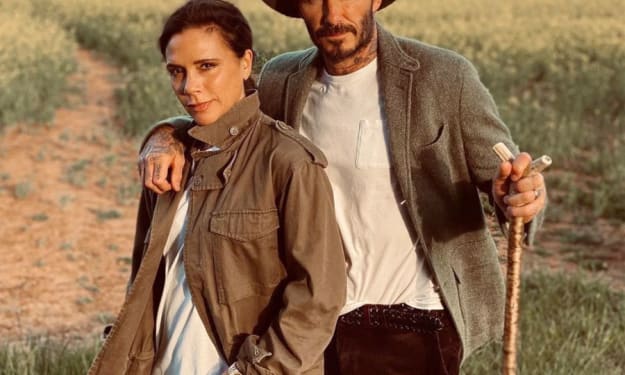Preserving Our Cultural Heritage
Celebrating Diversity and History

Cultural heritage is the legacy of tangible and intangible artifacts, traditions, and customs passed down through generations, shaping the identities and narratives of communities around the world. From ancient monuments and archaeological sites to oral traditions and folk music, cultural heritage reflects the richness and diversity of human experience. In this article, we'll explore the importance of preserving cultural heritage, the challenges it faces, and the efforts to safeguard it for future generations.
Understanding Cultural Heritage
Cultural heritage encompasses a wide range of artifacts, sites, and practices that hold significance for communities and societies. Tangible heritage includes archaeological sites, historical buildings, artworks, and artifacts, while intangible heritage encompasses traditions, rituals, languages, music, and oral histories. Together, they form the fabric of cultural identity, connecting past, present, and future generations.
Importance of Cultural Heritage Preservation
Preserving cultural heritage is vital for maintaining cultural identity, fostering pride and belonging, and promoting intergenerational transmission of knowledge and traditions. Cultural heritage serves as a source of inspiration, creativity, and innovation, enriching society with diverse perspectives and experiences. Additionally, cultural heritage contributes to tourism, economic development, and sustainable livelihoods, generating revenue and employment opportunities for communities.
Challenges to Cultural Heritage Preservation
Despite its significance, cultural heritage faces numerous threats and challenges. Urbanization, industrialization, and modernization often lead to the destruction or degradation of historical sites and cultural landscapes. Climate change poses additional risks, with rising sea levels, extreme weather events, and natural disasters endangering vulnerable heritage sites. Furthermore, armed conflict, looting, and illicit trafficking of cultural artifacts contribute to the loss and destruction of cultural heritage around the world.
Efforts in Cultural Heritage Conservation
In response to these challenges, governments, international organizations, and local communities have implemented various conservation and preservation initiatives. UNESCO, through its World Heritage program, designates and protects sites of outstanding universal value, fostering international cooperation and awareness of cultural heritage. Additionally, heritage conservation organizations, museums, and cultural institutions work to safeguard artifacts, promote research, and engage communities in heritage preservation efforts.
Community Engagement and Empowerment
Community involvement is essential for the sustainable preservation of cultural heritage. Local communities often have intimate knowledge of their cultural traditions and can contribute valuable insights into conservation practices and decision-making processes. Empowering communities through education, training, and capacity-building initiatives enables them to take ownership of their heritage and become stewards of its preservation for future generations.
Digital Preservation and Innovation
Advances in technology offer new opportunities for the preservation and dissemination of cultural heritage. Digital tools such as 3D scanning, virtual reality, and digital archives enable the documentation and virtual reconstruction of heritage sites and artifacts, enhancing accessibility and engagement. Furthermore, digital platforms facilitate the sharing of knowledge and resources, connecting diverse communities and fostering collaboration in heritage conservation efforts.
Conclusion
In conclusion, cultural heritage preservation is not merely about protecting relics of the past; it's about safeguarding the essence of humanity itself. Our cultural heritage is a testament to the diversity, resilience, and creativity of human societies throughout history. By preserving cultural heritage, we honor the stories of our ancestors, celebrate the achievements of past civilizations, and lay the foundation for future generations to thrive.
As we navigate the complexities of the modern world, the importance of cultural heritage preservation cannot be overstated. It serves as a bridge between the past, present, and future, connecting us to our roots and guiding us toward a more inclusive and sustainable future. By recognizing the intrinsic value of cultural diversity and empowering communities to take ownership of their heritage, we can ensure that cultural heritage remains a source of inspiration, identity, and belonging for people around the world.
In the face of global challenges such as climate change, urbanization, and conflict, the preservation of cultural heritage requires collective action and collaboration. Governments, organizations, and individuals must work together to protect vulnerable sites, combat illicit trafficking of cultural artifacts, and promote sustainable conservation practices. By harnessing the power of technology, innovation, and community engagement, we can overcome these challenges and create a world where cultural heritage thrives as a beacon of unity, understanding, and respect.
Ultimately, cultural heritage preservation is an investment in the resilience and vitality of human societies. It reminds us of our shared humanity and the interconnectedness of our stories, weaving a tapestry of diversity and resilience that transcends borders and generations. As stewards of cultural heritage, we have a responsibility to cherish, protect, and celebrate the treasures of our collective past, ensuring that they continue to inspire and enrich the lives of present and future generations for centuries to come.
About the Creator
Mohamed Ali
Mohamed Ali is a passionate writer and researcher with a keen interest in exploring the complexities of human behavior and society through the lens of sociology. With a background in sociology and psychology.
Enjoyed the story? Support the Creator.
Subscribe for free to receive all their stories in your feed. You could also pledge your support or give them a one-off tip, letting them know you appreciate their work.






Comments
There are no comments for this story
Be the first to respond and start the conversation.